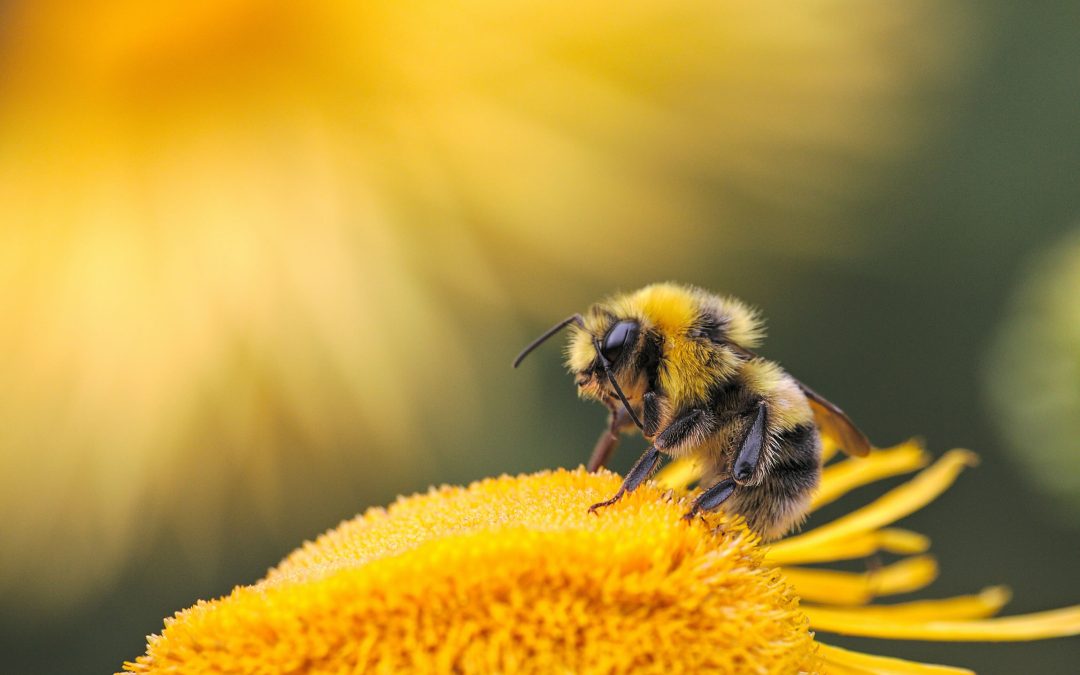We all know that bees play an important role in the natural plant ecosystem.
We also know that they’re responsible for pollinating plants, creating delicious honey, and keeping us company while we tend our gardens in the summer.
With that being said, it’s also true that very few people know exactly how important bees really are.
They’re also not just important to your garden, but to the majority of plant life in general.
In fact, they’re so crucial to the delicate nature of our sustainable food systems that without them, several different types of food may disappear from produce shelves altogether!
They help farmers to get better yields from crops, and also save them a ton in extra costs each year as well—which helps to increase revenue for farms large and small all across the world.
So in this post, we’re going to take a closer look at one of nature’s most ingenious little engineers.
Let’s talk about bees, pollination, and exactly how critical this little critter is to the care and well-being of our human food sources.
Bees Play a Vital Role in Nature
A lot of people don’t realize that there are about 20,000 different species of bees—and they live all around the world.
They’re also found in almost all different types of habitats, and they play a vital role in the animal kingdom and plant ecosystems.
They even have a profound effect on our lives as humans.
The most important and vital function that bees perform is assisting plants with pollination.
If it weren’t for bees, many plants would struggle to pollinate and reproduce.
For this reason, they play a significant role in the growth processes of most of the plant foods that humans eat.
Some estimates say that roughly 1 out of 3 bites of food that you eat during any given day was probably helped along in its life-cycle by a bee.
What Crops Do Bees Help to Pollinate?
Among the top 100 food crops that humans consume every day around the world, bees are responsible for pollinating more than 70 of them.
Just a few of the foods that may not be here if it weren’t for bees include:
- Apples
- Cranberries
- Melons
- Almonds
- Blueberries
- Cherries
- Watermelons
- Pumpkins
- Mangos
- Tomatoes
- Lentils
- Grapes
- Broccoli
And many, many more.
What Would Happen If Bees Disappeared?
If bees were to suddenly stop doing the amazing ‘pollination’ work that they’re so well-known for, the growth and harvest yields of many different types of plants would suddenly decrease.
Farmers would watch their incomes dwindle, and store shelves would grow more and more barren of the common foods that bees play a crucial role in pollinating.
We would also see many non-food-related plants struggling to reproduce as well.
The forests, the grasslands, the woodlands—all of these ecosystems would change and diminish in the absence of bees—potentially forever.
Even crops like cotton rely heavily on bees for growth. If it weren’t for bees—creating clothing out of cotton on a large scale might cease to be a sustainable possibility.
Are Bee Populations Declining?
Unfortunately, in recent years, we have experienced a decline in bee populations.
This is due to a number of complex issues—one of which is the use of deadly pesticides that are as dangerous to bees as they are to malicious insect invaders.
The total honeybee population in the United States decreased by a staggering 40% in the winters of 2018 and 2019 alone—which was cited by researchers as being an ‘unsustainable’ level of decline.
And beekeepers across the U.S. also reported that they lost roughly 45.5% of their managed honey bee colonies from April 2020 to April 2021.
Of course, humans have a lot of power in helping the bees to thrive and survive. Providing food and giving them plenty of room to live and roam is crucial to their ongoing survival.
So Next Time You See a Bee in Your Garden, Remember How Important They Are
You may even consider setting out a little dish of sugar water to give them a ‘boost’ as they help to pollinate your garden, create delicious honey, and just in-general help to keep our natural ecosystems alive, flourishing, and reproducing at such a consistent rate.
They really are nature’s little engineers—and they deserve our admiration and respect!

